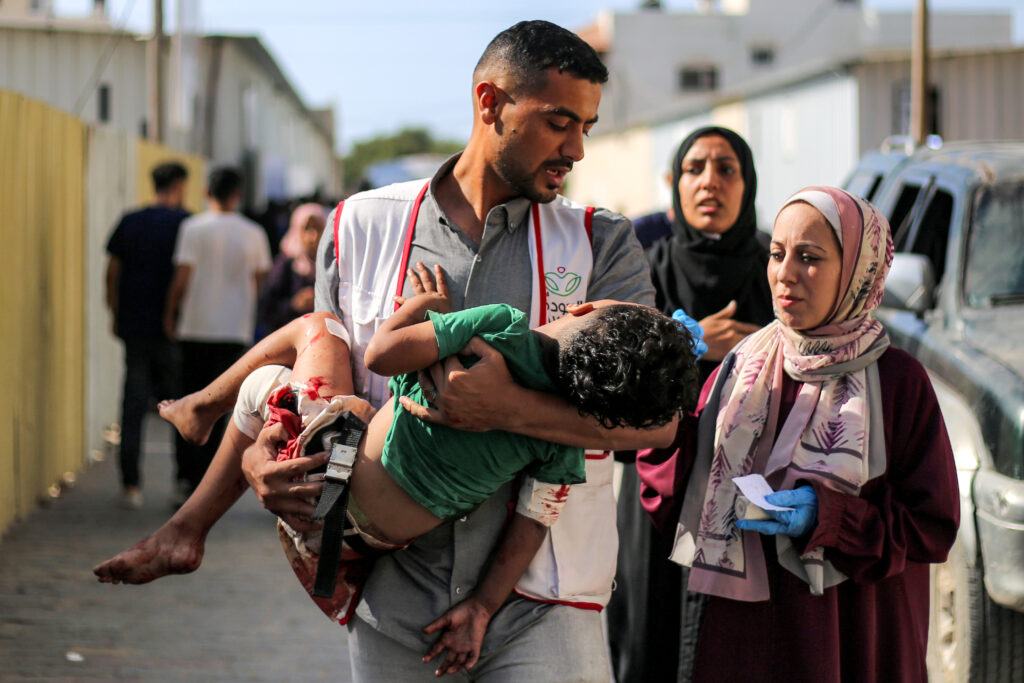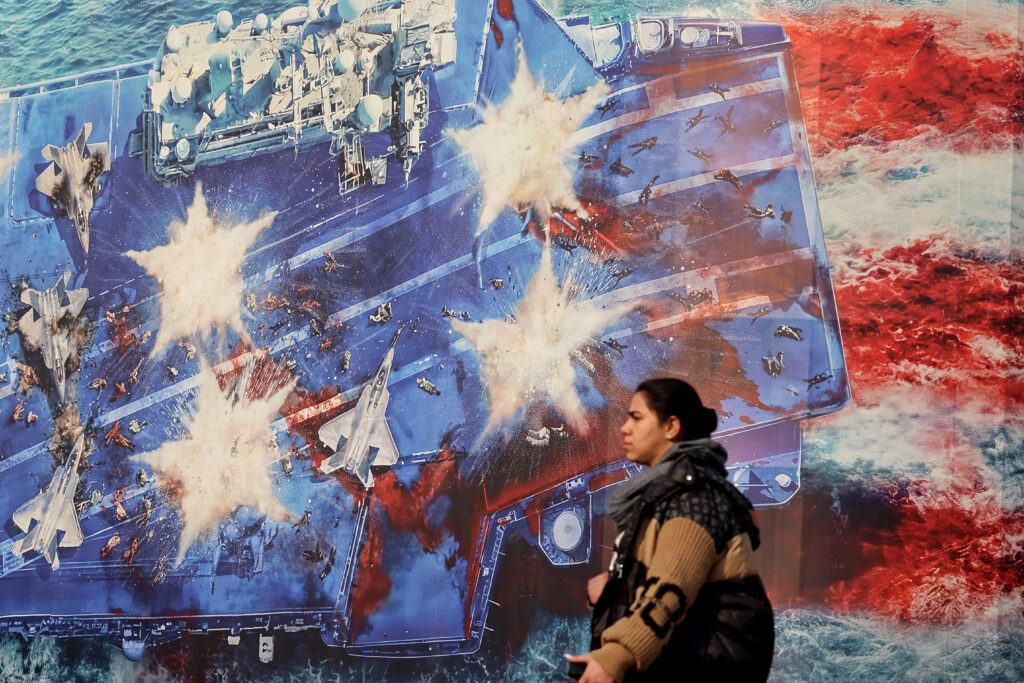AFP Asia Business
‘American Doctor’ tells of brutality in Israel-Hamas war
At the start of “American Doctor,” a new documentary about US medics working in hospitals in the Gaza Strip during the Israel-Hamas war, director Poh Si Teng initially declines to film pictures of dead Palestinian children that one of the doctors is trying to show her.Teng worries that she will have to pixelate the gruesome scene to protect the dignity of the children.”You’re not dignifying them unless you let their memory, their bodies, tell the story of this trauma, of this genocide. You’re not doing them a service by not showing them,” Jewish-American doctor Mark Perlmutter tells her.”This is what my tax dollars did. That’s what your tax dollars did. That’s what my neighbor’s tax dollars did. They have the right to know the truth.”You have the responsibility, as I do, to tell the truth. You pixelate this, that’s journalistic malpractice.”- Smuggling antibiotics -Teng’s unflinching film follows Perlmutter and two other American doctors — one Palestinian-American and the other a non-practicing Zoroastrian — as they try to treat the results of the unspeakable brutality visited on a largely civilian population in Gaza since Israel launched its retaliation for Hamas’s October 2023 attack.Alongside the severed limbs and the open wounds the doctors labor on with their Palestinian colleagues, we also see the trio’s attempts at advocacy — in Washington’s corridors of power and in Israeli and American media.The documentary also depicts the practical difficulties they face — the surgical scrubs and antibiotics they have to smuggle across the border to get around the Israeli blockade, and the last-minute refusals of Israeli authorities to let them in.And we see the bravery of men voluntarily going to work in hospitals that are repeatedly hit by the Israeli army.Israel rejects accusations its numerous strikes against Gaza hospitals amount to war crimes, saying it is targeting “terrorists” in these facilities and claims Hamas operatives are holed up in tunnels underneath the hospitals.The attacks include the so-called “double tap” strike on the Nasser Hospital in Khan Yunis, South of the Strip, in August 2025 where the three men have worked.Emergency responders and journalists who had rushed to the scene after a first projectile hit were killed when a second was fired at the same spot.- ‘Accessory to child murder’ -Feroze Sidwha, perhaps the most eloquent of the three doctors, repeatedly makes the case throughout the film that he has never seen any tunnels and that in any case, even the presence of wounded fighters in a hospital does not make it a legitimate target.”Americans deserve the opportunity to know what’s going on, what their money is being used for, and you know, just to decide. ‘Do you really want this being done?’,” he told AFP at the Sundance Film Festival, where the film got its premiere on Friday.”I’m pretty sure the answer is ‘no’. I just want to keep speaking out and letting people know they don’t have to be an accessory to child murder. But we all are, right now.”The film is dedicated to the around 1,700 healthcare workers who have been killed since Israel launched its invasion in October 2023.UN investigators have accused Israel of committing genocide in Gaza, a charge that Israel has denied as “distorted and false”, while accusing the authors of antisemitism.Despite a fragile ceasefire in place since October last year, there has been continued violence between Israeli forces and Hamas, which has seen Palestinian non-combatants killed, including dozens of children according to UNICEF.Reporters Without Borders says nearly 220 journalists have died since the start of the war, making Israel the biggest killer of journalists worldwide for three years running.The Sundance Film Festival runs until February 1.
Rights group says confirmed Iran protest toll over 6,000
A US-based rights group said Tuesday it had confirmed the deaths of over 6,000 people in protests in Iran suppressed by security forces, adding it was investigating over 17,000 more potential deaths and warning a wave of arrests was ongoing.The protests started in late December sparked by economic grievances but turned into a mass movement against the Islamic republic, with huge street rallies on January 8 and 9 that were the biggest in recent years.Rights groups have accused authorities of an unprecedented crackdown by shooting directly at protesters. The demonstrations have petered out for now.NGOs tracking the toll have said their task has been impeded by an almost three-week internet shutdown, warning that confirmed figures are likely to be far lower than the actual toll.The US-based Human Rights Activists News Agency (HRANA) said it had confirmed that 6,126 people had been killed, including 5,777 protesters, 86 minors, 214 members of the security forces and 49 bystanders.But the group, which has an extensive network of sources inside Iran and has tracked the protests on a daily basis since they began, added it was still investigating another 17,091 possible fatalities. At least 41,880 people have been arrested, it said.The group condemned “the continuation of communication control policies, the ongoing wave of arrests, and growing concerns over the safety of medical centres for the injured”.Activists have accused authorities of raiding hospitals to find injured protesters and then arresting them. The health ministry has said all people should present themselves at hospital without worry and not treat themselves at home.”Security agencies continue to pursue an approach centred on mass arrests, intimidation, and control of the narrative,” HRANA said.It said the reports of arrests inside hospitals “have generated new human rights concerns regarding the right to access medical care”.Giving their first official toll from the protests, Iranian authorities last week said 3,117 people were killed, the majority members of the security forces and innocent bystanders who authorities claim were killed by “rioters”.Over the weekend, Persian-language TV channel Iran International, which is based outside Iran, said more than 36,500 Iranians were killed by security forces between January 8 and 9, citing reports, documents and sources. It was not immediately possible to verify the report.`Another NGO, Norway-based Iran Human Rights (IHR), says it has documented at least 3,428 killings of protesters by the security forces and warned that the final toll risks reaching 25,000.


